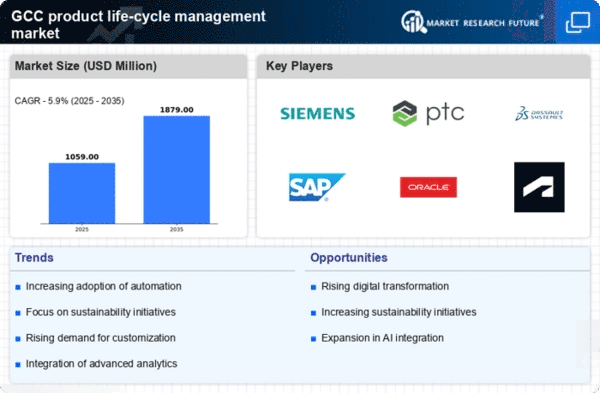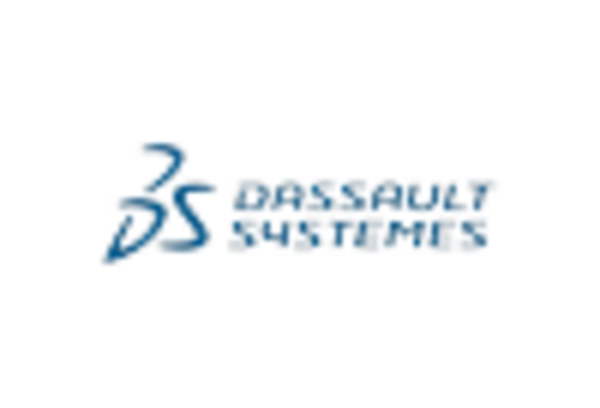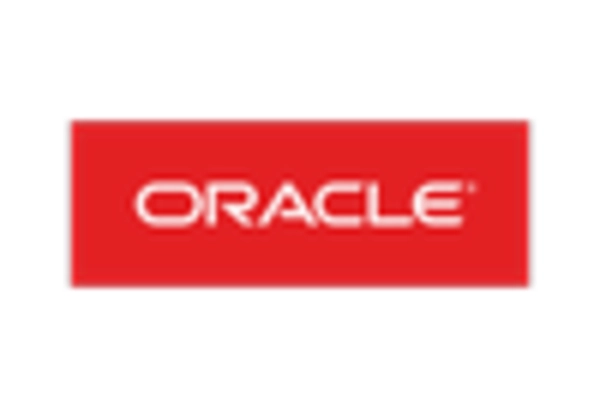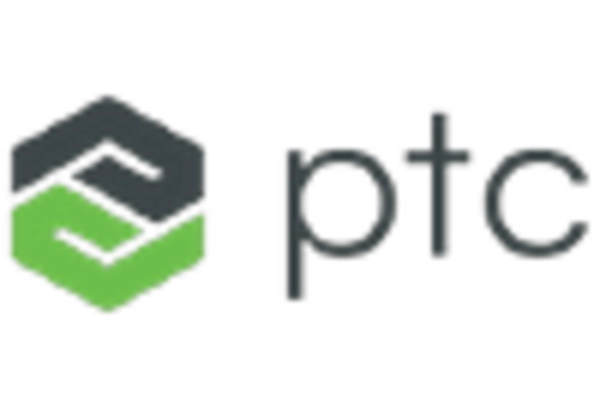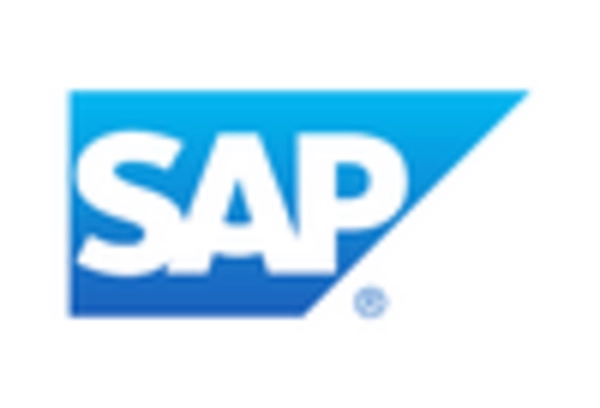Adoption of Sustainable Practices
The product life-cycle-management market is increasingly influenced by the adoption of sustainable practices among businesses in the GCC. As environmental concerns gain prominence, companies are seeking ways to minimize their ecological footprint throughout the product life cycle. This shift towards sustainability is prompting organizations to invest in product life-cycle-management solutions that facilitate eco-friendly practices, such as waste reduction and resource optimization. The market is expected to grow as businesses recognize the competitive advantage of sustainability, with estimates suggesting a potential increase of 10% in market size over the next few years. This trend reflects a broader commitment to corporate social responsibility and the recognition that sustainable practices can lead to long-term profitability and brand loyalty.
Growing Focus on Digital Transformation
The product life-cycle-management market is witnessing a growing focus on digital transformation initiatives among businesses in the GCC. As organizations increasingly adopt digital technologies, there is a corresponding need for advanced product life-cycle-management solutions that can integrate seamlessly with existing systems. This shift is driven by the desire to enhance operational efficiency, improve customer experiences, and foster innovation. Companies are investing in cloud-based platforms and IoT technologies to streamline processes and gain real-time insights into product performance. The digital transformation trend is expected to propel the product life-cycle-management market forward, with projections indicating a potential market expansion of 18% in the coming years. This growth reflects the recognition that digital tools are essential for maintaining competitiveness in an evolving marketplace.
Increased Regulatory Compliance Requirements
The product life-cycle-management market is significantly influenced by the increasing regulatory compliance requirements across various sectors in the GCC. Governments are implementing stringent regulations aimed at ensuring product safety, environmental protection, and quality assurance. This regulatory landscape compels companies to adopt robust product life-cycle-management solutions that can help them navigate compliance challenges effectively. For instance, industries such as pharmaceuticals and food and beverage are particularly affected, as they must adhere to strict guidelines. The market for product life-cycle-management solutions is expected to grow as organizations invest in systems that ensure compliance, mitigate risks, and enhance transparency. This trend indicates a shift towards more accountable and responsible business practices, which could potentially lead to a market growth rate of 15% over the next few years.
Emphasis on Collaborative Product Development
The product life-cycle-management market is increasingly characterized by an emphasis on collaborative product development practices. In the GCC, companies are recognizing the value of cross-functional teams and partnerships in driving innovation and reducing time-to-market. This collaborative approach enables organizations to leverage diverse expertise and resources, ultimately leading to more successful product outcomes. The integration of collaborative tools within product life-cycle-management systems is becoming essential, as it facilitates communication and coordination among stakeholders. As businesses strive to enhance their product development processes, the market for product life-cycle-management solutions is likely to see a growth trajectory of approximately 12% over the next few years. This trend underscores the importance of collaboration in achieving strategic objectives and fostering a culture of innovation.
Rising Demand for Efficient Resource Management
The product life-cycle-management market is experiencing a notable surge in demand for efficient resource management solutions. As industries in the GCC region strive to optimize their operations, the need for tools that can effectively manage resources throughout the product life cycle becomes increasingly critical. This demand is driven by the necessity to reduce waste and enhance productivity, which can lead to cost savings of up to 20%. Companies are recognizing that effective resource management not only improves operational efficiency but also contributes to sustainability goals. The integration of advanced analytics and data-driven decision-making is likely to play a pivotal role in this trend, as organizations seek to leverage insights for better resource allocation. Consequently, the product life-cycle-management market is poised for growth as businesses invest in technologies that facilitate efficient resource utilization.


